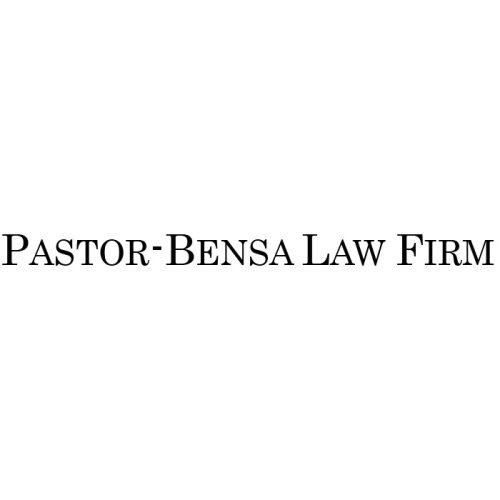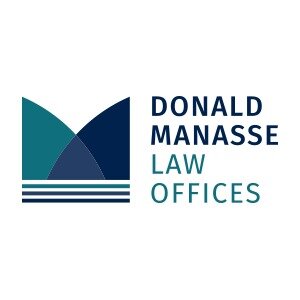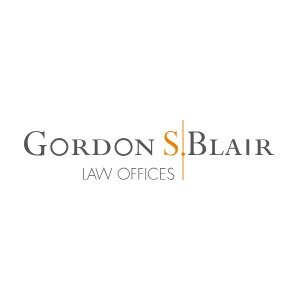Best Employer Lawyers in Monaco
Share your needs with us, get contacted by law firms.
Free. Takes 2 min.
Or refine your search by selecting a city:
List of the best lawyers in Monaco
About Employer Law in Monaco
Employer law in Monaco is a branch of employment law that governs the rights and responsibilities of employers within the principality. Monaco’s legal system is primarily influenced by French law but contains its distinctive regulations and procedures. The principality is renowned for its business-friendly environment, and its employment laws are crafted to balance the interests of employers and employees alike. These laws cover various aspects of the employer-employee relationship, including employment contracts, termination, working conditions, and workplace safety.
Why You May Need a Lawyer
Employers in Monaco may encounter numerous situations where legal assistance becomes essential. Common scenarios include drafting or reviewing employment contracts to ensure compliance with local laws and regulations, handling disputes with employees, managing layoffs and terminations, and ensuring adherence to Monaco’s strict privacy and data protection laws. Lawyers can also assist in navigating complex regulations related to workplace health and safety, employer contributions, and tax obligations. Additionally, legal expertise might be necessary when expanding or downsizing business operations within Monaco.
Local Laws Overview
Monaco's employment laws encompass several critical areas that are particularly relevant for employers. Employment agreements must be written and comply with local labor codes. Termination of employment requires justification, and employers must adhere to notice periods and severance payments as stipulated by law. The principality's regulations also mandate specific working hours, rest breaks, and holidays. Monaco places a strong emphasis on workplace safety, and employers are obligated to implement comprehensive safety measures. Social security contributions are also a significant aspect, with employers required to contribute to social insurance schemes on behalf of their employees.
Frequently Asked Questions
What constitutes a legal employment contract in Monaco?
In Monaco, a legal employment contract must include key details such as the job description, salary, working hours, and duration of the employment. It should conform to local labor laws to be deemed valid.
How are employment contracts terminated in Monaco?
Termination of employment in Monaco must be justified with valid reasons. Employers must provide written notice and respect the notice periods specified by the law. Severance pay may also be applicable based on the length of service and the terms of the contract.
What are the working hour regulations for employers in Monaco?
The standard working hours in Monaco are generally set at 39 hours per week. However, specifics can vary based on the employment contract and applicable collective agreements. Overtime pay is mandated for hours worked beyond the stipulated weekly limit.
What are the obligations of employers regarding workplace safety?
Employers in Monaco are required to implement safety measures to protect the health and well-being of employees. This includes regular risk assessments, provision of safety equipment, and compliance with fire and emergency protocols.
How does social security work for employers in Monaco?
Employers in Monaco must contribute to social security schemes for their employees, covering healthcare, pension, and unemployment benefits. This involves both employer and employee contributions, which are calculated as a percentage of the employee's salary.
Are non-disclosure agreements (NDAs) enforceable in Monaco?
Yes, NDAs are enforceable in Monaco provided they meet the legal requirements and are reasonable in scope and duration. They are commonly used to protect confidential information and trade secrets.
What are the rules concerning employee privacy in Monaco?
Monaco has strict data protection laws that require employers to safeguard employee personal data and privacy. Employers must ensure compliance with these regulations, including obtaining consent and ensuring secure data storage.
How can an employer handle disputes with employees?
Employers should first attempt to resolve disputes internally through mediation or negotiation. If unresolved, legal recourse may be necessary, and it is advisable to seek the assistance of a lawyer to navigate the process effectively.
What are the tax obligations of employers in Monaco?
Monaco does not levy income tax on individuals; however, employers must manage payroll taxes and contributions. Firms with commercial and industrial activities may face different tax requirements and should seek precise legal and financial counsel.
Can employers in Monaco employ foreign workers?
Yes, employers can hire foreign workers, but they must comply with visa and work permit requirements. These involve obtaining necessary authorizations and ensuring legal adherence in contractual arrangements.
Additional Resources
Several resources can assist employers seeking legal advice in Monaco. These include the Department of Employment, the Chamber of Commerce of Monaco, various labor unions, and professional legal associations. Consulting with local legal experts specializing in employment law can provide tailored guidance.
Next Steps
If you require legal assistance regarding employer issues in Monaco, consider consulting a local employment lawyer experienced in Monegasque law. Begin by researching potential legal firms or professionals, and seek initial consultations to understand how they can address your specific needs. Additionally, gathering all relevant documents and clearly outlining your legal queries can help facilitate the consultation process.
Lawzana helps you find the best lawyers and law firms in Monaco through a curated and pre-screened list of qualified legal professionals. Our platform offers rankings and detailed profiles of attorneys and law firms, allowing you to compare based on practice areas, including Employer, experience, and client feedback.
Each profile includes a description of the firm's areas of practice, client reviews, team members and partners, year of establishment, spoken languages, office locations, contact information, social media presence, and any published articles or resources. Most firms on our platform speak English and are experienced in both local and international legal matters.
Get a quote from top-rated law firms in Monaco — quickly, securely, and without unnecessary hassle.
Disclaimer:
The information provided on this page is for general informational purposes only and does not constitute legal advice. While we strive to ensure the accuracy and relevance of the content, legal information may change over time, and interpretations of the law can vary. You should always consult with a qualified legal professional for advice specific to your situation.
We disclaim all liability for actions taken or not taken based on the content of this page. If you believe any information is incorrect or outdated, please contact us, and we will review and update it where appropriate.
Browse employer law firms by city in Monaco
Refine your search by selecting a city.

















